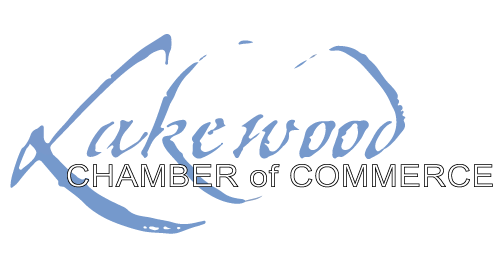Lakewood Chamber of Commerce
Board of Directors Policy Position
Oppose HB 1320—Business and Occupation Tax Increases
January 28, 2025
House Bill 1320 proposes a 20% surcharge on the business and occupation (B&O) tax rate for businesses in the “service and other activities” category with annual income exceeding $1 million from October 2025 through December 2026.
It further enacts a permanent 10% B&O tax increase for all businesses starting in January 2027. While the bill aims to fund programs and services for Washington residents, these sweeping tax hikes will harm businesses, reduce job opportunities, and undermine the state’s economic competitiveness.
Key Concerns:
1. Disproportionate Impact on Small and Mid-Sized Businesses:
A 20% surcharge disproportionately affects service-based businesses, including professional services, healthcare providers, and small-to-mid-sized companies. Many of these businesses already operate on tight margins and would struggle to absorb a sudden and significant tax increase. This surcharge penalizes successful businesses for growing their revenue while discouraging further investment and expansion.
2. Harmful Economic Ripple Effects:
Increasing B&O taxes will force businesses to make difficult choices, such as reducing staff, cutting wages, or passing costs to consumers. These actions have a cascading effect on local economies, reducing overall economic activity and disproportionately impacting lower-income communities that rely on job opportunities and affordable services.
3. Permanent Tax Hike Reduces Long-Term Competitiveness:
The 10% B&O tax increase beginning in 2027 creates a permanent disincentive for businesses to operate in Washington. The state’s B&O tax is already one of the most regressive tax structures in the nation, as it taxes gross receipts rather than profits, meaning businesses pay the tax regardless of profitability. Further increasing this tax exacerbates the burden and drives businesses to relocate to more tax-friendly states.
4. Administrative Burden and Uncertainty:
Temporary surcharges and future rate hikes create administrative challenges for businesses, as they must continuously adjust to changing tax obligations. This uncertainty disrupts financial planning and discourages long-term investments in workforce development, innovation, and infrastructure.
5. Lack of Targeted Solutions:
While the bill aims to fund programs that benefit Washingtonians, it provides no clear framework for how the revenue will be allocated. Broad tax increases without targeted investments fail to ensure that the funds address the most pressing needs of residents or provide a measurable return on investment for taxpayers.
6. Washington’s Competitive Disadvantage:
Increasing the B&O tax will make Washington less attractive to businesses compared to neighboring states. At a time when businesses can relocate more easily than ever, creating a more burdensome tax environment risks eroding the state’s economic base and driving businesses elsewhere.
Recommendations:
* Reject HB 1320: Broad-based tax increases are not the solution to funding state programs. Legislators should seek targeted and sustainable revenue solutions that do not disproportionately burden businesses or harm the state’s economy.
* Reform the B&O Tax Structure: Rather than increasing rates, the state should explore reforms to the B&O tax system to make it less regressive, such as taxing net income instead of gross receipts or providing exemptions for small businesses.
* Focus on Economic Growth: The best way to fund state programs is to support a thriving business climate that fosters innovation, job creation, and revenue growth. Legislators should prioritize policies that encourage investment and business expansion rather than imposing punitive tax hikes.
Conclusion:
HB 1320 threatens the vitality of Washington’s economy by imposing significant tax increases on businesses already burdened by a regressive tax system. This legislation will harm job creation, discourage investment, and reduce the state’s competitive edge, all while creating uncertainty for businesses and consumers alike. We strongly urge lawmakers to reject HB 1320 and pursue equitable and sustainable solutions that prioritize economic growth and shared prosperity.



